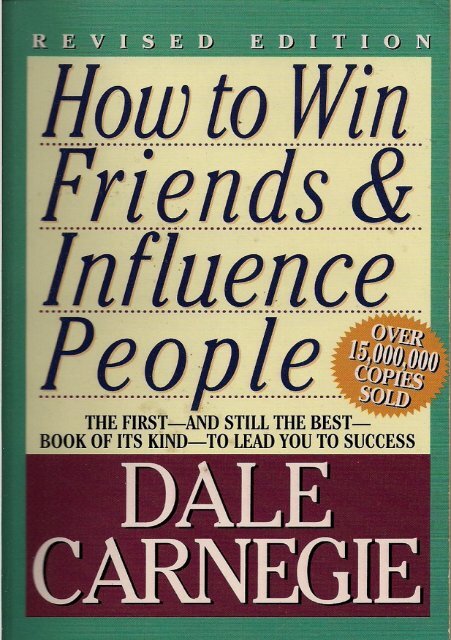Introduction
In a world that thrives on connections and influence, one book stands out as an eternal beacon of wisdom and guidance - "How to Win Friends and Influence People" by Dale Carnegie. First published in 1936, this masterpiece has withstood the test of time, captivating readers with its timeless principles on how to forge meaningful relationships, enhance communication skills, and positively impact others' lives. In this comprehensive guide, we will delve into the key insights from the book and explore practical strategies on how to apply them in various aspects of life, thereby mastering the art of winning friends and influencing people.
- The Power of Understanding Human Nature
At the core of Dale Carnegie's teachings lies the profound understanding of human nature. He emphasizes that to influence others positively, we must first understand them deeply. By appreciating people's needs, desires, and fears, we can empathize with their perspectives, leading to more authentic and meaningful connections.
In the digital age, when face-to-face interactions are scarce, the ability to empathize becomes even more critical. Actively listening to others, paying attention to their emotions, and showing genuine interest in their lives can go a long way in winning their hearts and minds.
- The Art of Making People Feel Important
Carnegie stresses the significance of making people feel valued and important in every interaction. He insists on the power of sincere appreciation and how it can transform relationships. Recognizing people's achievements, complimenting their efforts, and offering praise are simple yet powerful tools that can significantly impact the way others perceive us.
In professional settings, acknowledging employees' contributions can boost morale and foster a positive work environment. Similarly, in personal relationships, expressing gratitude and acknowledging the efforts of our loved ones can strengthen the bond we share with them.
- Mastering the Skill of Effective Communication
Communication is the cornerstone of human interaction, and Dale Carnegie was a master of this art. In his book, he emphasizes the importance of being an attentive and compelling communicator. By developing excellent conversational skills, we can make others feel comfortable and valued in our presence.
Using the power of storytelling, speaking in terms of the other person's interests, and avoiding arguments are just some of the techniques Carnegie recommends to build rapport and understanding. Employing these strategies can lead to constructive conversations, successful negotiations, and stronger relationships.
- Handling Criticism and Conflict with Grace
Inevitably, life presents us with conflicts and criticism. Carnegie provides valuable insights on how to handle these situations gracefully. He advises against engaging in disputes and instead encourages finding common ground and diplomatically addressing disagreements.
In the face of criticism, Carnegie suggests embracing it as an opportunity for growth and improvement. Accepting constructive feedback with humility and a willingness to learn can help us build resilience and cultivate better relationships.
- Influencing Others to Your Way of Thinking
While seeking to influence others positively, we may encounter situations where our opinions differ. In such instances, Dale Carnegie advocates a respectful approach to persuade others to our point of view. He emphasizes the importance of understanding others' perspectives and finding areas of agreement before presenting our arguments.
Building on shared interests and demonstrating genuine concern for others' welfare can significantly enhance our persuasive abilities. By focusing on the benefits that align with their values, we can create win-win situations, leading to more successful outcomes.



